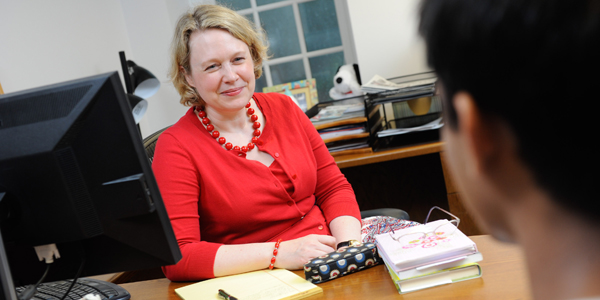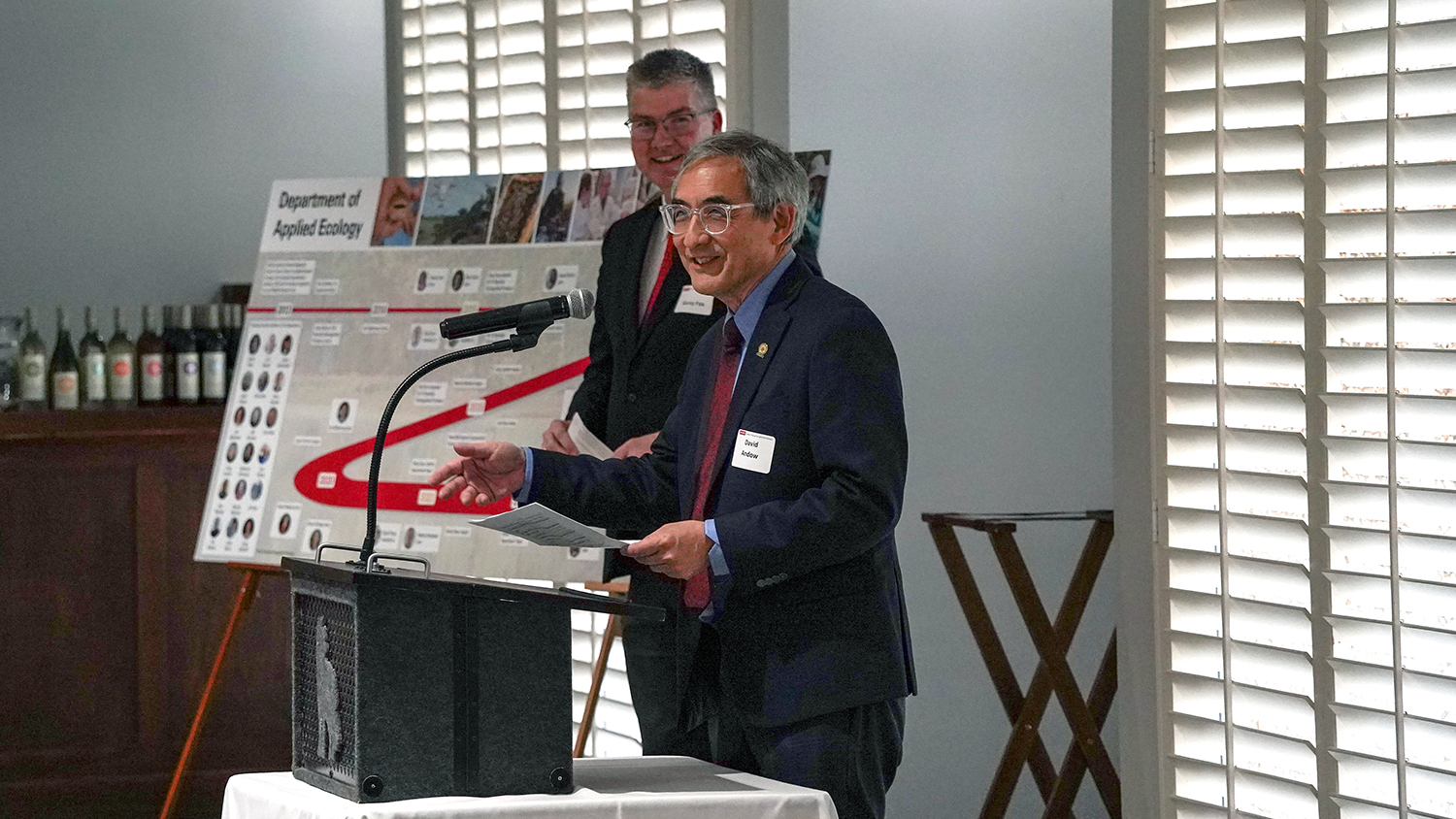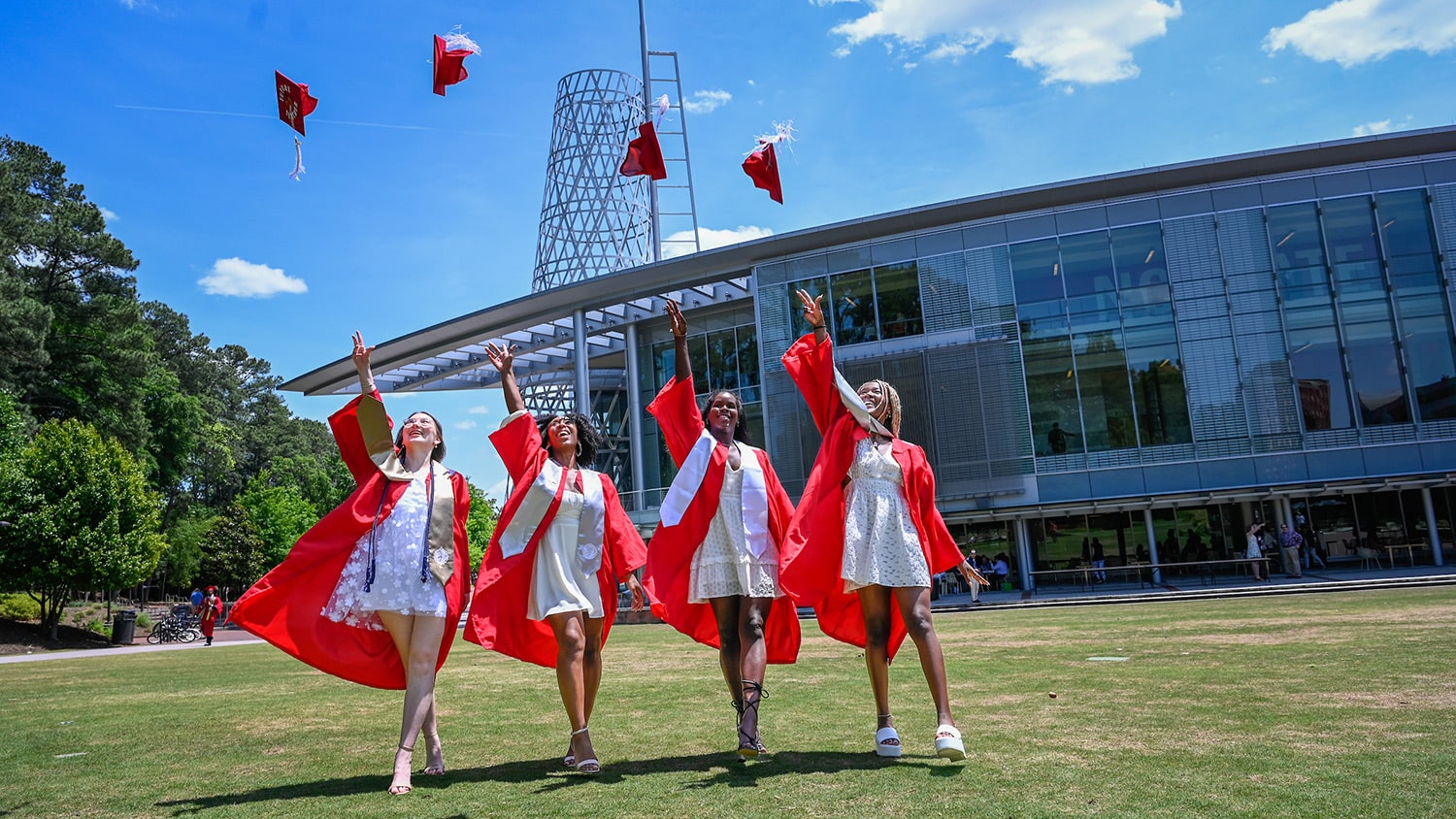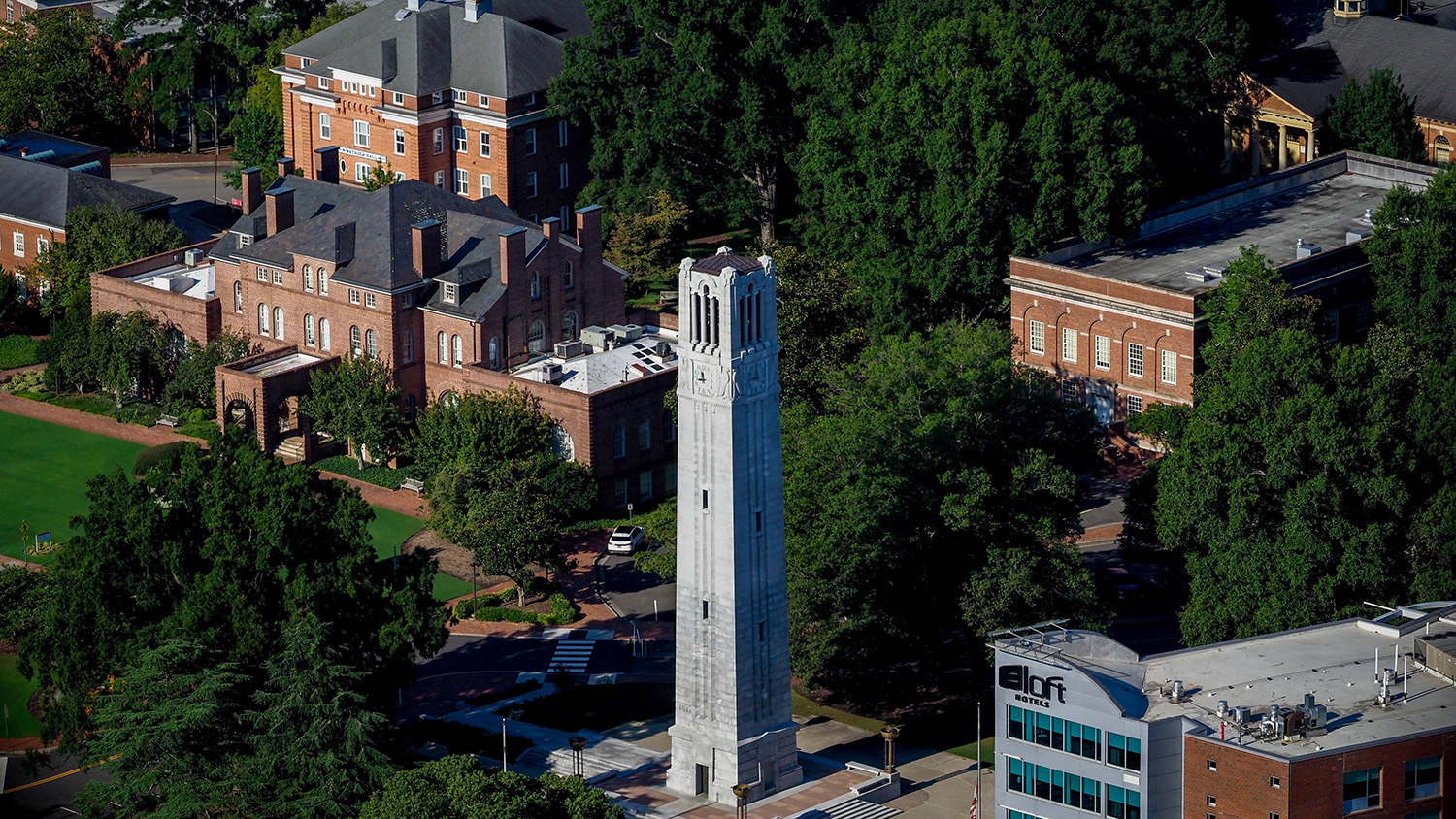Coaching NC State’s Academic Champs

The display cases lining the walls outside Tiffany Kershner’s office in Clark Hall are crowded with the signs of student achievement. Behind rows of plate glass you’ll find plaques inscribed with the names of dozens of students who have won some of the nation’s most prestigious academic awards.
Kershner calls the narrow hallway her “howls of fame” – a testament to the full-throated support she gives every student who visits her sunny second-floor office for help and advice.
Kershner is the university’s coordinator for distinguished scholarships and fellowships, a “one-woman show,” in her words, with one of the most challenging and rewarding jobs on campus.
It’s up to Kershner to match NC State’s brightest students with promising opportunities for academic (and often financial) advancement. That includes everything from the famed Rhodes Scholarship, which has eluded NC State students so far, to a host of highly competitive scholarships and fellowships that sound like they were named at a meeting of the Council on Foreign Relations.
Big Name Opportunities
The Marshall Scholarship, named for former Secretary of State George C. Marshall, funds graduate studies for about 40 American students a year in Britain. The Harry S. Truman Scholarship, named in honor of the 33rd president, provides $30,000 for graduate study and priority admissions to top schools for about 60 students a year. The Goldwater Scholarship, established by Congress to honor former Arizona Sen. Barry Goldwater, is the most prestigious undergraduate award given in the sciences, providing up to $7,500 a year to about 300 students.
“A lot of people are fixated on just one,” Kershner says. “But there are so many wonderful opportunities. If a student really wants to go to the U.K. for graduate school, for example, there are a lot of highly competitive fellowships that are as prestigious as a Rhodes.”
The Rhodes Scholarship, which underwrites the cost of postgraduate study at Oxford for about 30 students a year, is considered the world’s most prestigious scholarship. Past recipients include President Bill Clinton, actor and musician Kris Kristofferson and feminist social critic Naomi Wolf.
As the university becomes increasingly selective, it’s only a matter of time before an NC State student scores the elusive prize, Kershner believes.
It Takes a Village
The momentum is promising. NC State had four Goldwater Scholars in 2012, the maximum number allowed, and three in both 2013 and 2014. Plus, the university boasted a Udall Scholar, a Boren Fellow and a finalist for the Truman scholarship this year. Students also picked up more than a dozen Gilman International Scholarships, 17 NSF Research Fellowships and four Fulbright Scholarships – a school record for NC State – this year.

It takes a fair amount of work to help students prepare for the rigorous competition they face when applying for a highly sought-after scholarship like a Marshall, Goldwater or Udall. Since Kershner’s time is limited, she relies to a large extent on faculty referrals to put her in touch with top prospects.
“It really does take a village of scholars to support this work,” she says.
Kershner gives students individual attention, helping them select the opportunities that best match their interests, and then coaching them through the complex process of distilling their qualifications and accomplishments into an application that will impress a panel of judges. She begins the process by patiently listening to students tell their stories.
“I want to get to know them to see if they have a spark and passion for their discipline,” she explains. “I want to hear their goals for the future, to find out what they would do if money wasn’t an issue. I want to find out if they are dreamers.”
Under Kershner’s guidance, students revise their essays and applications a dozen times or more, working to make them as compelling and engaging as possible. In the end, each reflects the applicant’s unique combination of strengths and struggles.
Limited Resources

In the competitive world of fellowships and scholarships, NC State has faced its own struggles. The university abruptly closed the fellowship advising office in 2009 in response to state budget cuts, then reopened it a few years later.
Kershner, who often works 12-hour days to accommodate the large number of applicants for popular opportunities like the Fulbright or the NSF Research Fellowship program, can’t be blamed for casting a jealous eye on peer institutions that have three or more staff members to carry the load.
To do justice to students who have the chance to earn a life-changing scholarship or fellowship, Kershner spends between 15 and 19 hours with each. The path doesn’t include a lot of shortcuts.
“There’s no formula,” she says. “I can’t just throw in the ingredients, stir them up and out pops a scholarship recipient.”
But when it’s done right, an opportunity like the Gates Cambridge Scholarship or the Udall Scholarship pays dividends for the university as much as the student, raising NC State’s academic reputation and helping it attract top performing students and world-leading faculty.
- Categories:


